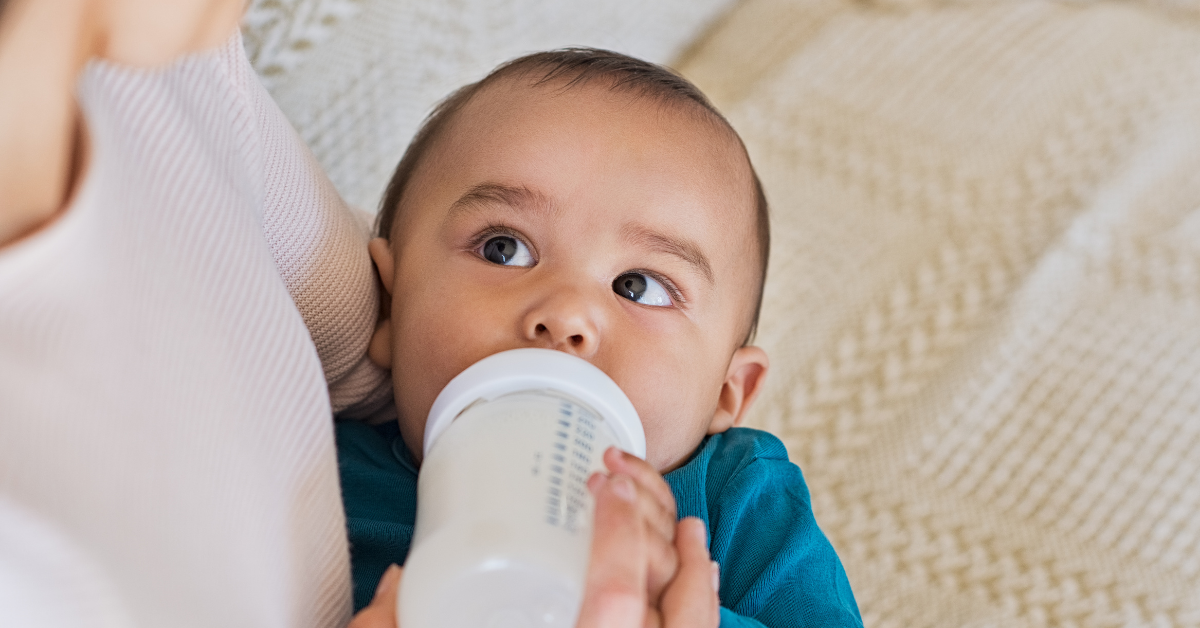Transitioning from a bottle with a teat to an open cup. Ten Top tips to help you make the transition

Through my work as a Nursery Principal and The Potty Queen I am often faced with a family that (perhaps) has relied upon a baby bottle of formula milk as a sleep aid, comfort and nutrition past the age of 18 months. Families find themselves locked in with a toddler who is able to express their desires and “boy o boy” do they love their milk. Often this toddler struggles at meal times, is a bit on the fussy side with food and can’t get off to sleep without the sucking and warmth of the bottle. In the nursery they might find it tricky to settle down at nap time without it. This has frequently been my experience, although every family is different. It’s understandable in a busy family to continue to use what has worked in the past, except that the toddler is growing at such a pace and needs to transition to the next stage. Sometimes parents can have a strong connection to the baby bottle as its their last child and they grieve the end of the baby stage. It is adorable to see a child sucking away and getting so much comfort from it, all snuggled up after all. Let’s face it as well, it has been the main source of comfort and the reason you could satisfy your baby when he/she was crying in the early days. Those survival days…
From 6 months your baby has the capacity to bring an object from their hand to mouth. This development stage could mean starting with a soft silicone cup that is soft to chew, then progressing to liquid inside the cup over the next few months as weaning starts. Skills grow in layers, scaffolding your child to the next development stage. At around 6-12 months babies naturally start to lose interest in the bottle as they discover finger foods and solid meals. This window of interest is ripe for exploration. By 18 months I would hope to see a toddler using an open cup or beaker and eating a wide range of food. This means the need for large bottles of formula milk fed has passed.
However, habits can be hard to break at 18 months as the will of the toddler emerges and it can be easier to build skills before you reach power struggles. Starting the transition at 6 months is a great place to start and in the coming months of weaning gradually moving to a soft beaker cup. Learning to drink from a straw is an important developmental milestone that develops lip rounding and promotes speech development and The Ezpz Mini Cup + Straw Training System teaches toddlers to drink from an open cup and safely learn to use a straw. I love the Ezpz range as the silicone is super soft and perfectly formed for small little hands. Mini Cup + Straw Training System (ezpzfunme.com)
Here are some top tips to transition from bottle to a cup
- Have a picnic! Using child/dolly sized tea cups to pour and drink from adds fun. It supports their hand to eye coordination as they pour and serve. They naturally start to take sips during the game.
- Avoid over use of sports bottle which also have a suck element to them, although a soft flexible straw can provide a half way house when transitioning
- Practice using multi-coloured beakers and a water jug, serving friends and family, this encourages independence and self-esteem
- Whilst you transition from bottle to cup with a toddler only serve milk after meals and gradually reduce the amount.
- Always brush teeth after having milk at night time to save those little teeth from decay
- Ask your child to help select a new beaker in the shop
- Encourage your child to get more involved in food preparation, even simple things such as cutting banana with a child safe knife is a start
- Set yourself a date as a parent, a deadline to aim towards
- Talk about how much more exciting new flavours come in cups to your child
- Prepare for spills, it might get messy as they learn to balance cups and estimate how much to pour or swallow. From accidents lessons are learnt and progress is made.
Wishing you all the best
Lisa
For more information or to contact The Potty Queen please click below. If you’d like top tips, news and updates from Lisa, please subscribe to our mailing list. Thank you!
